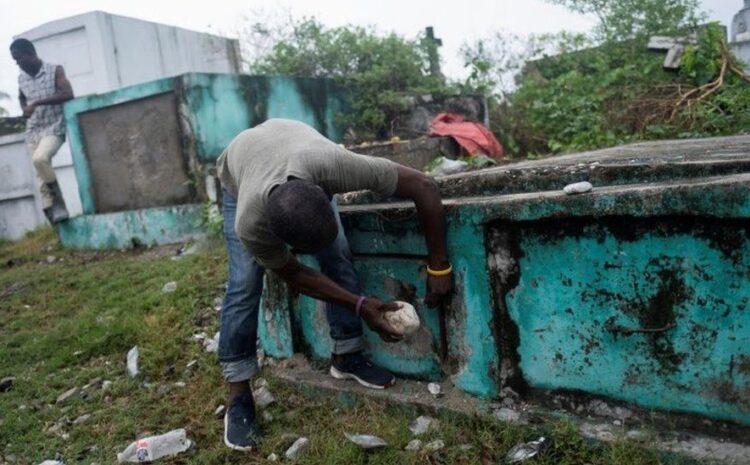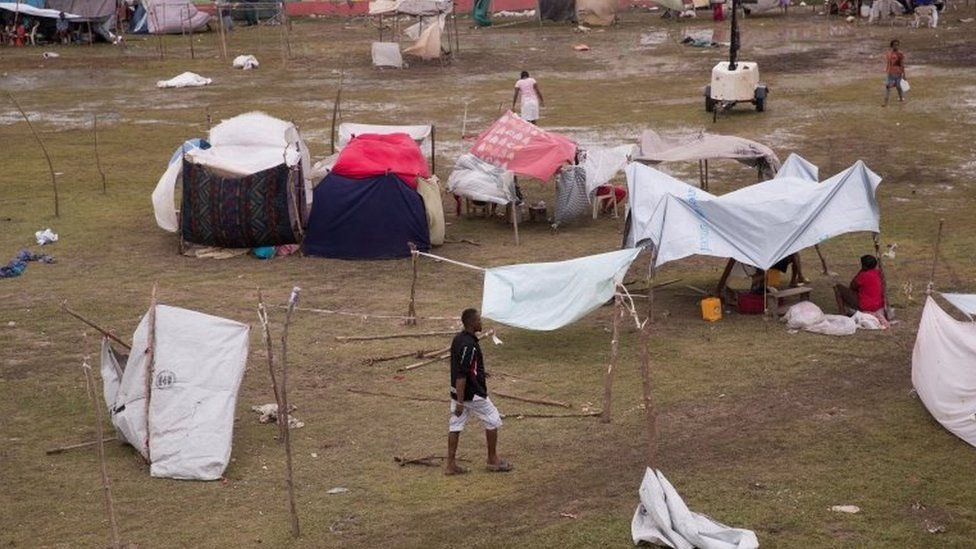
REUTERS image captionIn Les Cayes, some people broke open existing tombs to bury victims of the quake
Rescue workers have managed to pull 34 people alive from the rubble but many are still missing after the 7.2-magnitude quake.
The search for survivors has been hampered by heavy rains brought this week by Tropical Storm Grace.
Nearly 10,000 people have been injured and hospitals were left overwhelmed.
The UN says about 500,000 children now have limited or no access to shelter, safe water and food.
“Countless Haitian families who have lost everything due to the earthquake are now living literally with their feet in the water due to the flooding,” said Bruno Maes, the UN Children’s Fund (Unicef) representative in the country.
 IMAGE SOURCE EPA
IMAGE SOURCE EPA“Yesterday [Tuesday] evening, I took shelter near a church, but when I heard the ground shake again, I ran to return here,” city resident Magalie Cadet told AFP news agency.
She said so few structures remained standing in Les Cayes that people had to relieve themselves on the streets.
Haitians living in more remote areas said aid was yet to reach them.
“We have the will to do everything but we don’t have the money or resources,” a pastor told Reuters news agency.
The UN’s World Food Programme said it was working closely with the Haitian authorities to provide assistance to survivors.
But the heavy rains brought by Tropical Storm Grace have made many of the roads in the more mountainous regions impassable.
The south-west of Haiti appears to have suffered the worst of the damage from the quake, especially around Les Cayes.
The earthquake compounds problems facing the impoverished nation, which is already reeling from a political crisis following the assassination of its president last month.
Prime Minister Ariel Henry, who is in power until a fresh presidential election can be held, has declared a month-long state of emergency and urged the population to “show solidarity”.
Haiti has been hit by a series of natural disasters in the past, including Hurricane Matthew in 2016.
